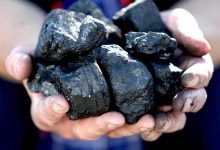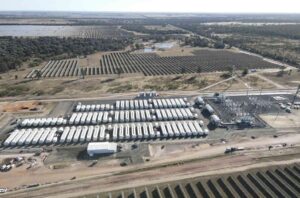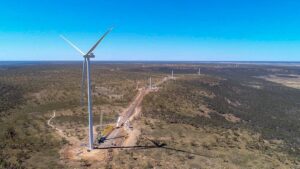Instead of an outright ban on new coal and gas projects, independent MPs are proposing to make the legal barriers so high that new fossil fuel projects are effectively impossible.
The fate of the federal government’s Safeguard Mechanism appears to lie largely over the willingness to stop new coal and gas projects. The Greens want a ban, and Labor is saying no. Independents are trying to find a compromise.
Senator David Pocock and independent MP Sophie Scamps have now suggested that the requirements on new coal and gas projects should be so strict that they would have no impact on the proposed 100 MT/CO2e cap on emissions by 2030. And they won’t allow offsets.
“Under the proposed model, facilities can meet their emissions reduction targets entirely with the purchase of offsets. There is no real abatement requirement. The only other jurisdiction that allows unlimited use of offsets is Kazakhstan,” Scamps said in a statement.
“My amendments will require all new, expanded, or extended fossil fuel facilities to have net zero carbon emissions at commencement, and for the life of the facility.”
She wants to see new gas projects required to enter the safeguard mechanism at net zero and expanding coal mines ensure the new area operates carbon-neutrally and remain that way for its operational life — and both to stay that way for the rest of their operational lives.
Companies extending the life of a coal seam gas project would need to ensure the project is net zero from the day of the project’s extension and stay there for its operational life.
Pocock says the government’s proposed equal treatment of the fossil fuel industry and every other facility under the Safeguard Mechanism will allow coal and gas companies to buy their way out of decarbonisation using offsets.
He also wants to see all new entrants to the Safeguard Mechanism, a title which he says should apply to all projects producing more than 100,000 t/CO2e a year, have a net zero impact on emissions and no access to ACCUs to help them comply with baselines.
Pocock is also proposing a few different ways to tie new and expanding fossil fuel projects up in red tape.
He wants wording included in the reforms to ensure ministers must consider the impact on the total emissions budget when deciding on expansions or new coal and gas projects, by measuring it against the rate needed to meet Australia’s Paris Agreement targets and legislating an annual carbon budget of 1,233 MT/ CO2e between 2021 and 2030.
And for reporting on methane emissions, which are more than 80 times more potent than carbon dioxide in the atmosphere and for which the fossil fuel industry is a massive contributor, needs to be brought up to international best practices.
He also wants any SMC credits derived from methane reduction only tradeable with methane emissions from other Safeguard-covered facilities — and not let them be dissipated into the broader ACCU market.
Finally, he wants fossil fuel industries denied access to public funding under the Safeguard Transformation Stream, which should only be given to facilities that can use it to “support genuine business transformation to decarbonise operations.”
Controversial reforms back in Parliament
The Safeguard Mechanism amendments are due to be debated again in Parliament today, and while it’s seen as the most important climate legislation for both this government and in a decade, Greens and independent MPs are pushing hard for changes, and a commitment not to approve new coal and gas projects.
The Safeguard Mechanism reforms require big polluters to cut their greenhouse gas emissions by nearly 5 per cent a year out to 2030, with a total cap on emissions of 100 MT/CO2e by 2030.
In exchange, they get unlimited access to carbon offsets, via both Australian Carbon Credit Units (ACCUs) and Safeguard Mechanism Credits (SMCs), and an initial $600 million in funding from the newly announced $1.9 billion Powering the Regions Fund, to help cover the cost of emissions reduction.
But the reforms are controversial, in part because they treat fossil fuel projects the same as critical albeit heavy polluting industries such as steel, aluminium and cement.
A study by Climate Analytics suggests if just existing plans for expansions at committee coal and gas projects are allowed to go ahead, emissions from just those mines and gas fields alone will hit 80 MT/CO2e thanks to massive underestimates of methane emissions. Other industries would be squeezed to rapidly reduce their own emissions to compensate for the extra, unmitigated emissions created by coal and gas.
More pressure groups demand ban on fossil fuel projects
Outside pressure is also growing on the federal government to halt new fossil fuel projects and expansions as part of its Safeguard Mechanism negotiations, after 50 environmental and climate organisations demanded that it heed scientific evidence on climate change.
In an open letter, the group says Australia has a “special responsibility” to stop contributing to rising global emissions caused by gas and coal production at home and overseas.
“Any serious climate policy must reduce fossil fuel production and emissions. Offsetting a tiny fraction of the total emissions from these projects is not a credible climate solution,” said the letter writers, which include The Australia Institute (TAI) , the Wilderness Society, GetUp, 350 Australia, Lock the Gate and Oxfam.
“The Australian Government lists over 100 new coal and gas projects as under development in Australia. Projects scheduled to begin before 2030 alone will add a further 1.4 billion tonnes annually by 2030.
“This excludes emissions from several major projects and vast new gas basins actively supported by Australian governments including the Barossa and Greater Sunrise offshore oil and gas fields, and the Beetaloo, Canning and Lake Eyre unconventional gas basins.
“We call on the Australian government to follow the advice of the world’s scientists and prevent any further new coal and gas developments in Australia.”
The open letter follows a similar edition signed by hundreds of academics earlier in March.






